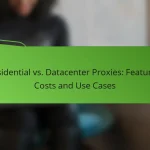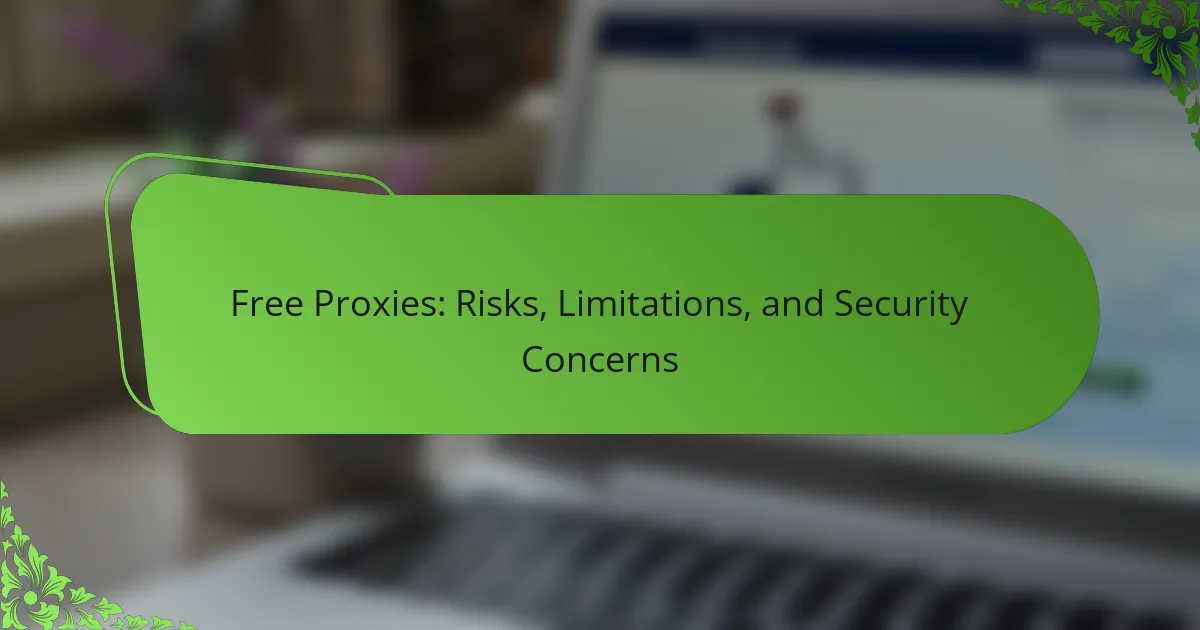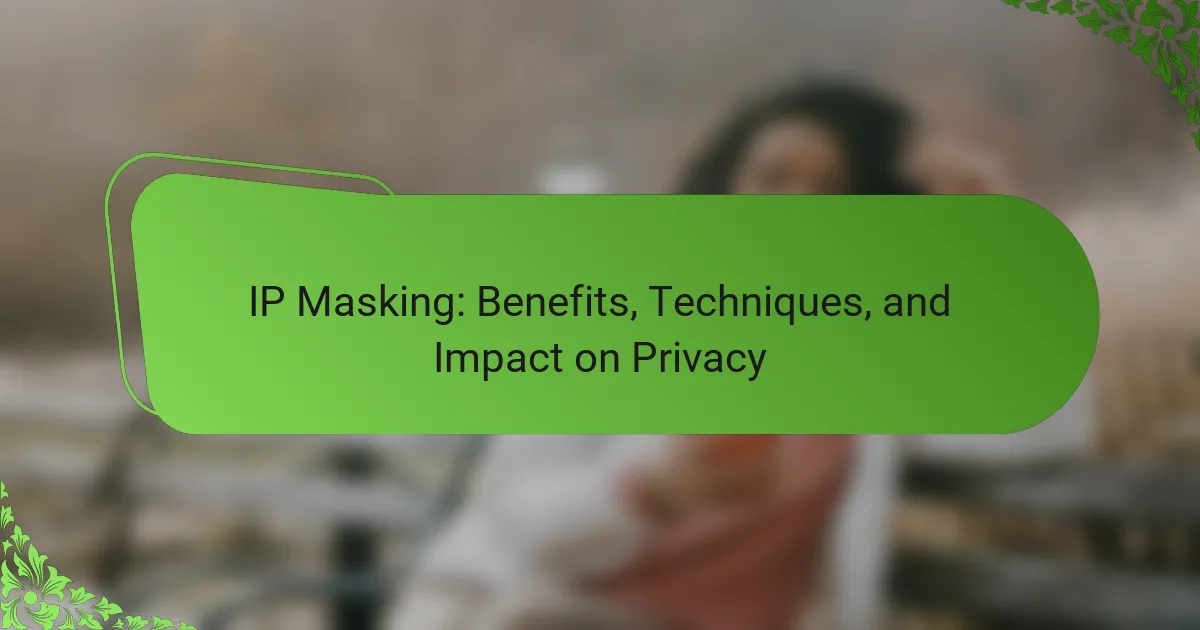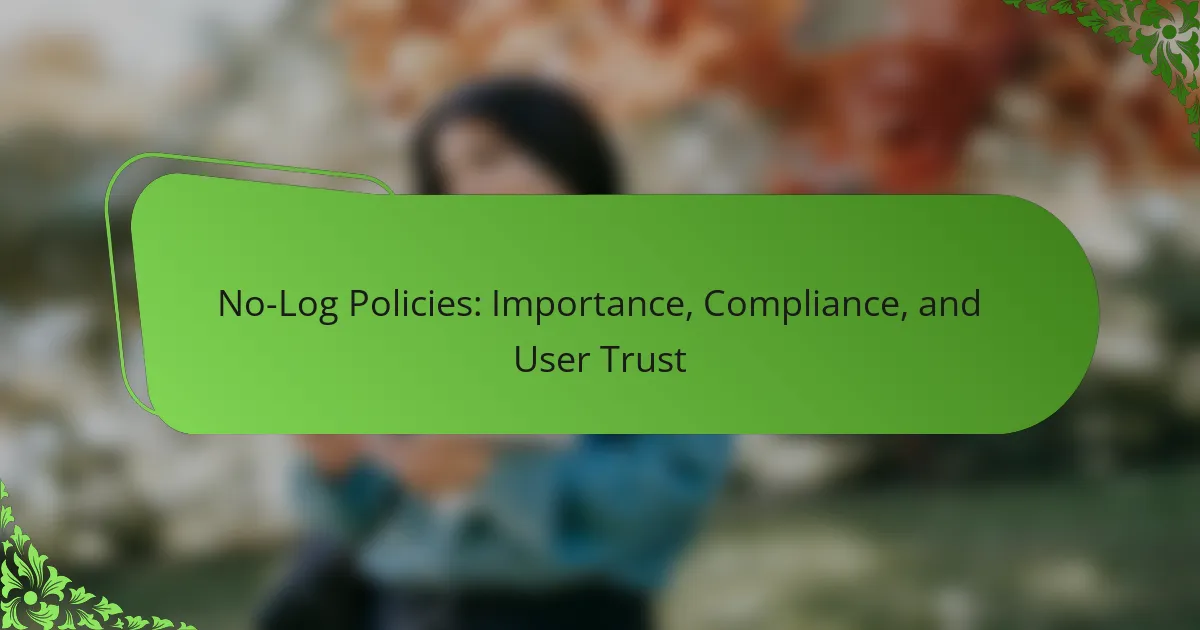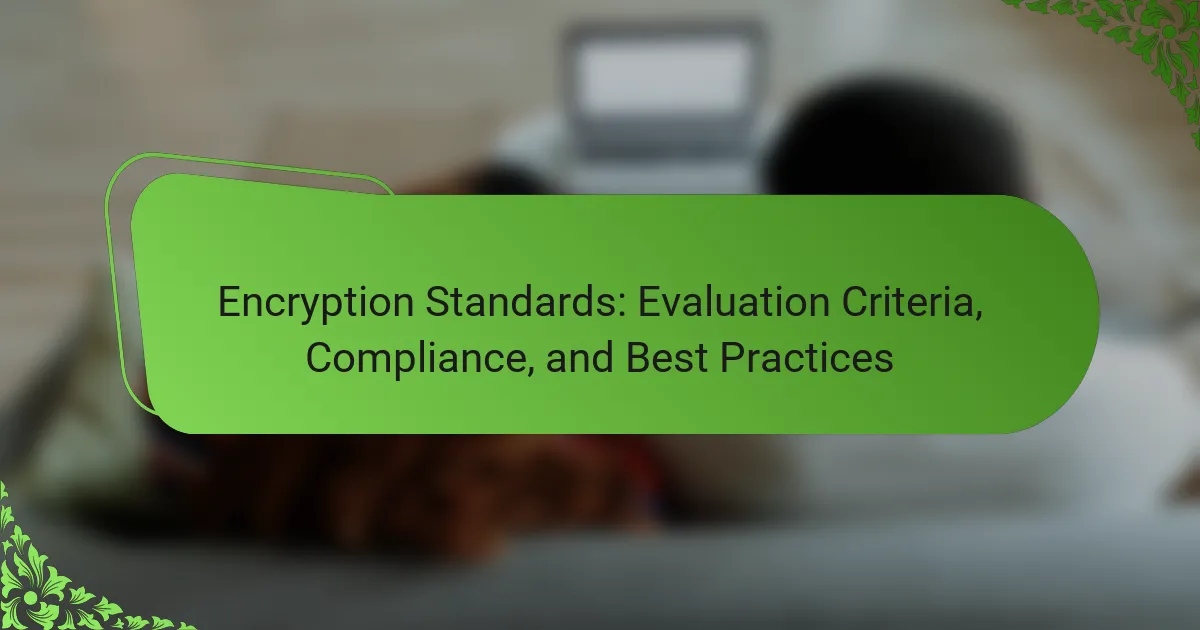Free proxies may seem like an attractive option for enhancing online privacy, but they come with significant risks and limitations. Users face potential data interception, malware exposure, and privacy violations, which can jeopardize personal information and overall security. Additionally, issues such as slow speeds and unreliable connections can further diminish the effectiveness of these services.
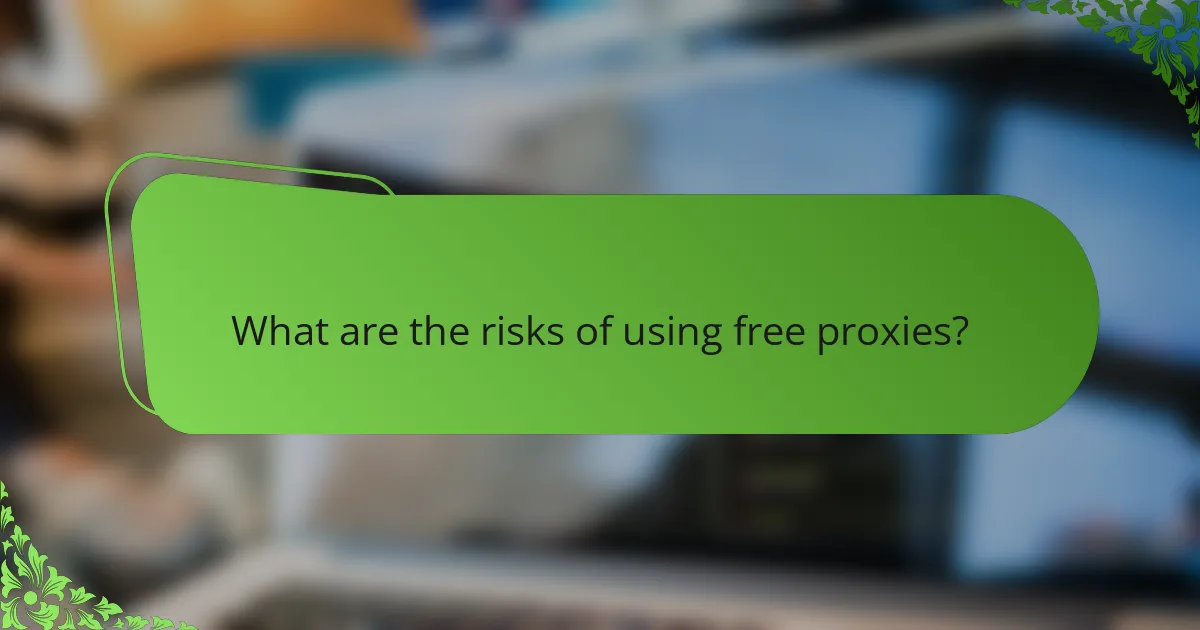
What are the risks of using free proxies?
Using free proxies carries significant risks, including data interception, malware exposure, and privacy violations. These vulnerabilities can compromise your personal information and online security, making it essential to understand the potential dangers before relying on free proxy services.
Data interception
Data interception occurs when malicious actors capture the information transmitted between your device and the websites you visit through a free proxy. Since many free proxies lack encryption, sensitive data such as passwords and credit card numbers can be easily accessed.
To mitigate this risk, avoid entering personal information while using free proxies. Consider using a Virtual Private Network (VPN) instead, as it encrypts your data and provides a more secure browsing experience.
Malware exposure
Free proxies can expose users to malware, as some services may inject harmful software into your device. This can happen through ads or compromised proxy servers that serve malicious content.
To protect yourself, ensure your antivirus software is up to date and avoid downloading files or clicking on links while using free proxies. Opt for reputable proxy services that have a track record of security and reliability.
Privacy violations
Privacy violations are a significant concern with free proxies, as many of these services log user activity and may sell this data to third parties. This can lead to targeted advertising or even identity theft.
To safeguard your privacy, research proxy providers thoroughly and choose those with strict no-logging policies. Alternatively, consider paid proxy services that prioritize user privacy and security.

What are the limitations of free proxies?
Free proxies come with several limitations that can significantly impact their effectiveness and security. Users often face issues related to speed, reliability, and connection stability, which can hinder their online experience.
Speed and reliability issues
Free proxies typically suffer from slow speeds due to high user traffic and limited bandwidth. Since many users share the same server, the connection can become congested, leading to delays and buffering. This can be particularly frustrating for activities that require real-time data, such as streaming or gaming.
Moreover, the reliability of free proxies is often questionable. Frequent disconnections and downtime can disrupt your internet usage, making it difficult to maintain a stable connection for important tasks.
Limited server locations
Free proxies usually offer a limited number of server locations, which restricts users’ ability to access geo-restricted content. With fewer options, you may not be able to connect to a server in a specific country, limiting your access to certain websites or services.
This limitation can also affect the overall performance of the proxy. If the available servers are located far from your actual location, you may experience increased latency and slower connection speeds.
Connection stability
Connection stability is another significant concern with free proxies. These services often lack the infrastructure and resources to maintain a consistent connection. As a result, users may experience frequent interruptions, which can be particularly problematic for tasks that require a stable internet connection.
Additionally, free proxies may not have robust security measures in place, further compromising connection stability. This can lead to dropped connections or even exposure to malicious activities, making it essential to choose a reliable proxy service for secure browsing.
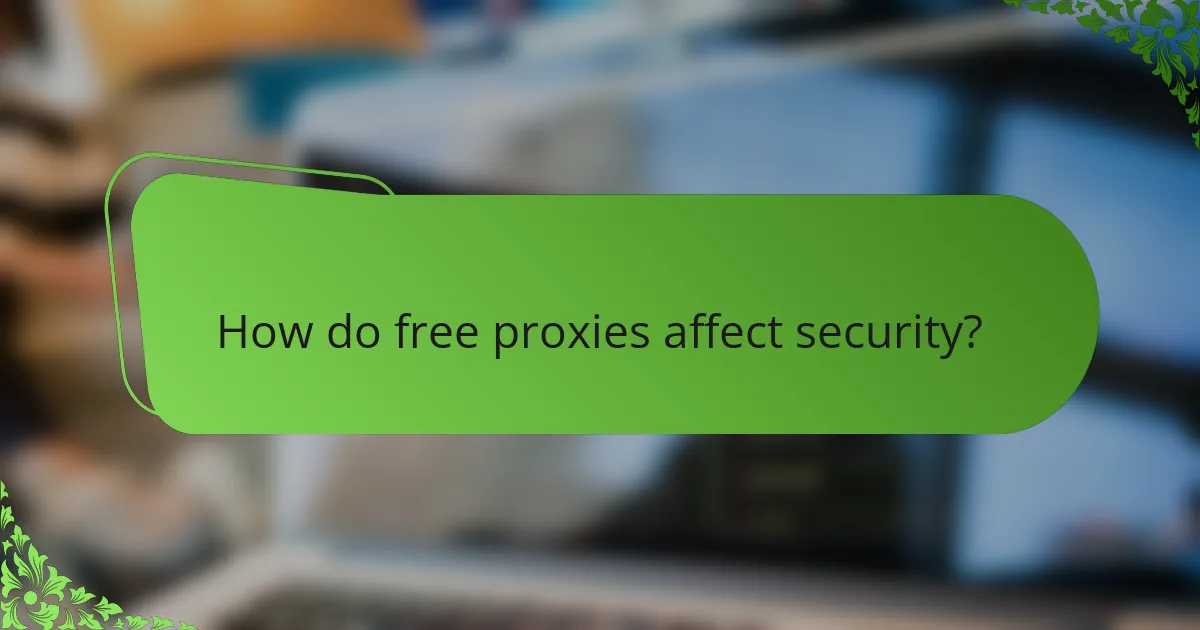
How do free proxies affect security?
Free proxies can significantly compromise your security by exposing your data and online activities to various risks. Users should be aware of the inherent vulnerabilities associated with these services, which often lack essential protective measures.
Encryption absence
Many free proxies do not provide encryption, leaving your data vulnerable to interception. Without encryption, sensitive information such as passwords and personal details can be easily accessed by malicious actors.
When using a proxy without encryption, your internet traffic is transmitted in plain text. This means that anyone monitoring the network can read your data, making it crucial to choose proxies that offer secure connections, such as HTTPS.
Potential for IP logging
Free proxies often log user activity, including IP addresses, which can lead to privacy breaches. Providers may sell this data to third parties or use it for malicious purposes, undermining the anonymity that users seek.
Before using a free proxy, review its privacy policy to understand what data is collected and how it is used. Opt for services that explicitly state they do not log user activity to minimize risks.
Exposure to cyber threats
Using free proxies can increase your exposure to cyber threats, such as malware and phishing attacks. Some free proxy services may inject ads or malicious scripts into your browsing sessions, putting your device and data at risk.
To protect yourself, avoid downloading files or clicking on links while using free proxies. Additionally, consider using reputable antivirus software to detect and block potential threats that may arise during your online activities.

What are the alternatives to free proxies?
Alternatives to free proxies include paid proxy services, VPN solutions, and dedicated IP options. Each of these alternatives offers enhanced security, improved performance, and greater reliability compared to free proxies.
Paid proxy services
Paid proxy services provide users with dedicated resources that enhance privacy and speed. These services typically offer various types of proxies, including residential and data center options, which can cater to different needs.
When selecting a paid proxy service, consider factors such as speed, location availability, and customer support. Prices can range from a few dollars to over a hundred dollars per month, depending on the features and bandwidth offered.
VPN solutions
VPN solutions encrypt your internet connection and mask your IP address, providing a secure alternative to free proxies. Unlike proxies, VPNs route all your internet traffic through a secure server, which enhances privacy and security.
When choosing a VPN, look for one with a no-logs policy, strong encryption standards, and a user-friendly interface. Subscription costs typically range from around $5 to $15 per month, depending on the provider and plan.
Dedicated IP options
Dedicated IP options provide users with a unique IP address that is not shared with others, enhancing security and reducing the risk of being blacklisted. This is particularly useful for businesses that require consistent access to specific online services.
Dedicated IPs can be obtained through both paid proxy services and VPN providers. Expect to pay an additional fee, often around $5 to $10 per month, on top of your existing service subscription for this feature.
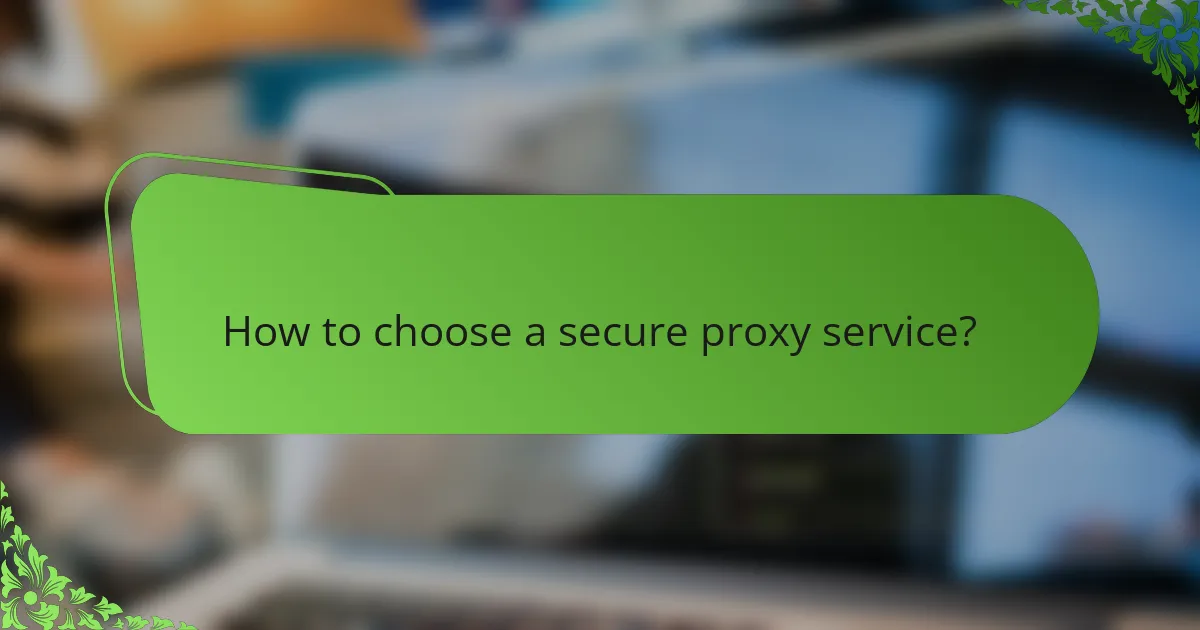
How to choose a secure proxy service?
To choose a secure proxy service, prioritize providers that offer strong encryption, a solid reputation, and positive user feedback. Assessing these factors will help ensure your online activities remain private and secure.
Evaluate encryption standards
When selecting a proxy service, the encryption standards it employs are crucial for safeguarding your data. Look for services that utilize protocols like HTTPS, SSL, or even more advanced options like SOCKS5, which provide enhanced security features.
Consider the level of encryption offered; 256-bit encryption is generally regarded as highly secure. Additionally, ensure that the proxy service does not log your activities, as this can compromise your privacy.
Check user reviews
User reviews can provide valuable insights into the reliability and security of a proxy service. Look for feedback on platforms like Trustpilot or Reddit, focusing on comments about privacy, speed, and customer support.
Be cautious of services with a large number of negative reviews or complaints about data leaks. A proxy with a strong track record and positive user experiences is more likely to offer the security you need.
